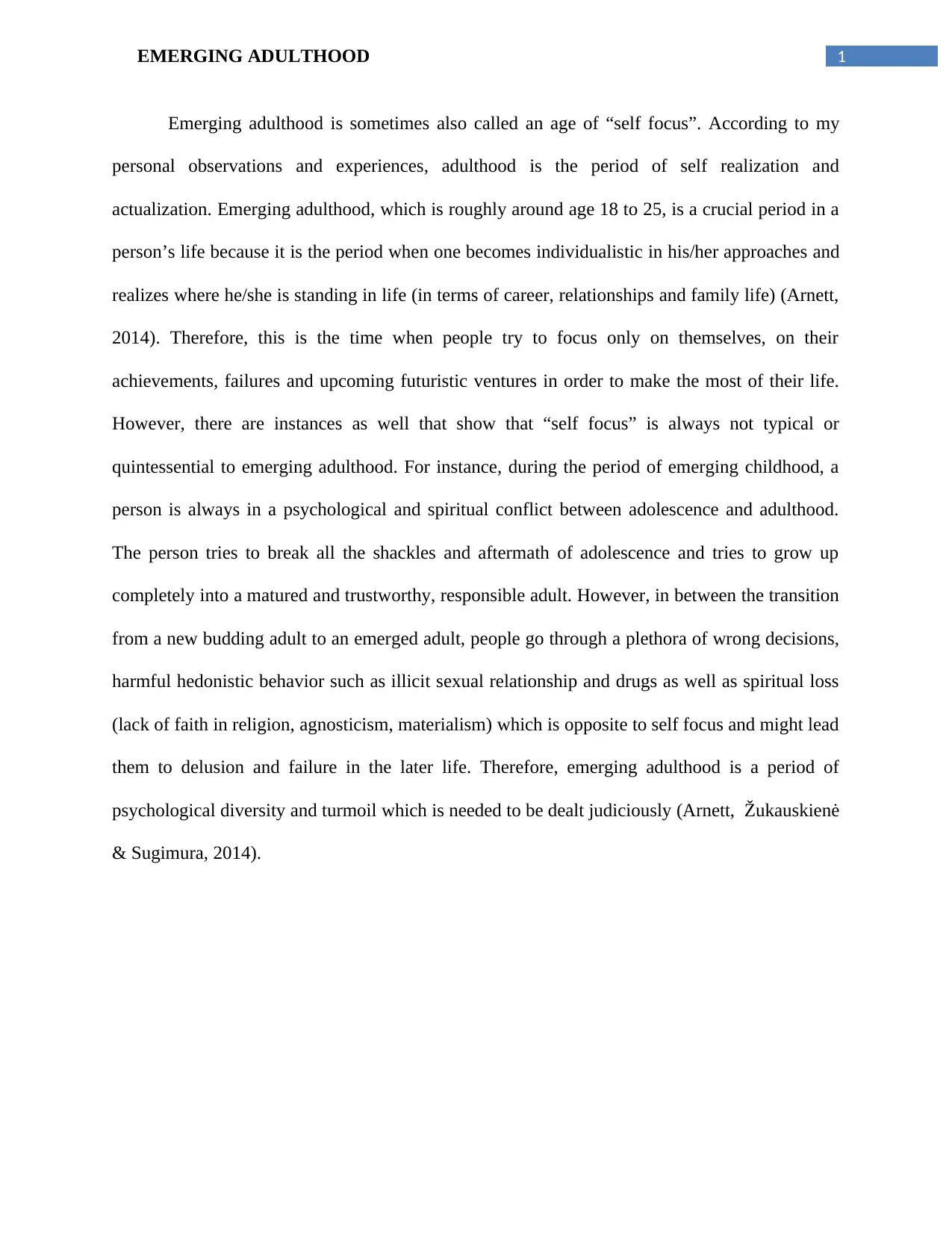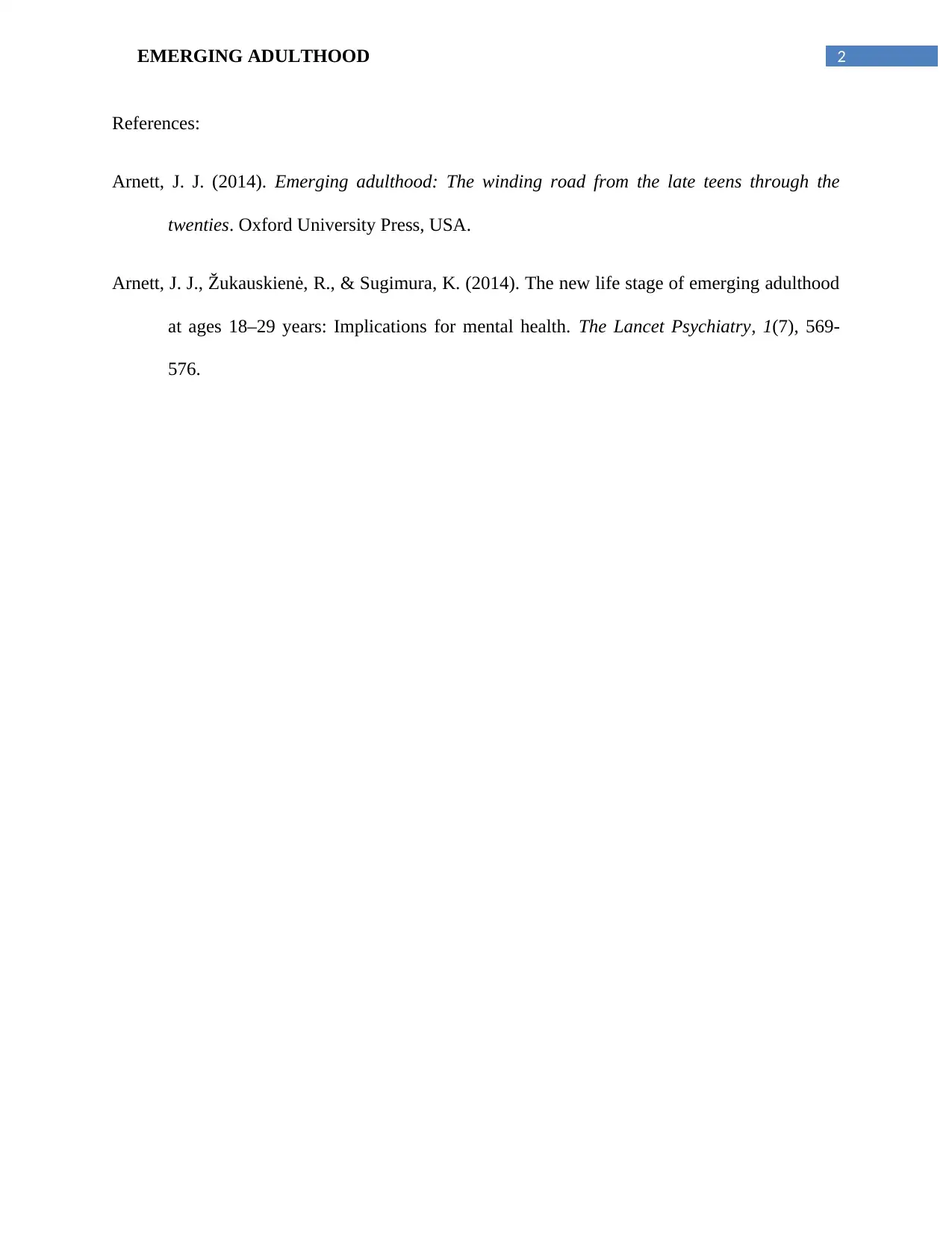Self-Focus and Psychological Diversity in Emerging Adulthood Stage
VerifiedAdded on 2022/08/24
|3
|396
|38
Essay
AI Summary
This essay explores the concept of emerging adulthood, particularly the period of self-focus that characterizes it. It argues that while emerging adulthood (ages 18-25) is a time of self-realization and individualistic pursuits, it is also marked by psychological and spiritual conflict. The transition from adolescence to adulthood involves navigating wrong decisions, hedonistic behaviors, and spiritual loss, which can contradict self-focus. The essay emphasizes that emerging adulthood is a diverse and tumultuous period requiring careful navigation to avoid delusion and ensure future success, highlighting the psychological diversity and turmoil inherent in this life stage and referencing the work of Jeffrey Arnett.
1 out of 3










![[object Object]](/_next/static/media/star-bottom.7253800d.svg)